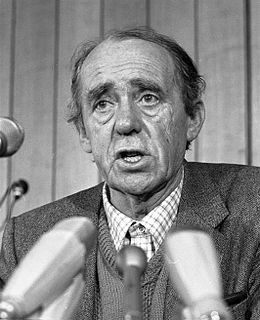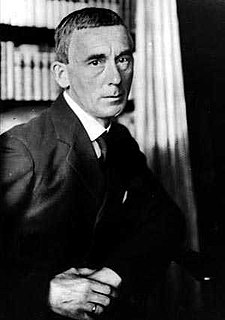A Quote by Adrian McKinty
I've never been a believer in the word-count thing. I write slowly and tinker with the words and the word order, and I throw a lot of stuff out.
Related Quotes
We cannot control the way people interpret our ideas or thoughts, but we can control the words and tones we choose to convey them. Peace is built on understanding, and wars are built on misunderstandings. Never underestimate the power of a single word, and never recklessly throw around words. One wrong word, or misinterpreted word, can change the meaning of an entire sentence - and even start a war. And one right word, or one kind word, can grant you the heavens and open doors.
Most people write the same sentence over and over again. The same number of words-say, 8-10, or 10-12. The same sentence structure. Try to become stretchy-if you generally write 8 words, throw a 20 word sentence in there, and a few three-word shorties. If you're generally a 20 word writer, make sure you throw in some threes, fivers and sevens, just to keep the reader from going crosseyed.
Behind every word a whole world is hidden that must be imagined. Actually, every word has a great burden of memories, not only just of one person but of all mankind. Take a word such as bread, or war; take a word such as chair, or bed or Heaven. Behind every word is a whole world. I'm afraid that most people use words as something to throw away without sensing the burden that lies in a word.
I was like, "This is a new thing that the gay people have decided? That's the gayest thing I've ever heard in my life." You can't do that. You can't decide that a word is forbidden now collectively amongst your group of human beings, that the word is a slanderous evil nasty word about homosexuals. It's not, the word doesn't mean that. And sometimes it's a good word to use in comedy. That's what your friend has to realize when he's at a bar just yelling out the word.
Each thing has its word, but the word has become a thing by itself. Why shouldn't I find it? Why can't a tree be called Pluplusch, and Pluplubasch when it has been raining? The word, the word, the word outside your domain, your stuffiness, this laughable impotence, your stupendous smugness, outside all the parrotry of your self-evident limitedness. The word, gentlemen, is a public concern of the first importance.
An average English word is four letters and a half. By hard, honest labor I've dug all the large words out of my vocabulary and shaved it down till the average is three and a half... I never write metropolis for seven cents, because I can get the same money for city. I never write policeman, because I can get the same price for cop.... I never write valetudinarian at all, for not even hunger and wretchedness can humble me to the point where I will do a word like that for seven cents; I wouldn't do it for fifteen.
Write a lot. And I mean a ridiculous amount. You have to write so much that you don't mind throwing away and changing things that you've written - which is the second thing you have to do. A lot of young writers are very precious about their words. Don't be - you've got to be ready to burn stuff. You're not as good as you think you are, at least not yet. The more you write, the faster you'll write, and the less you'll mind throwing stuff out.





































